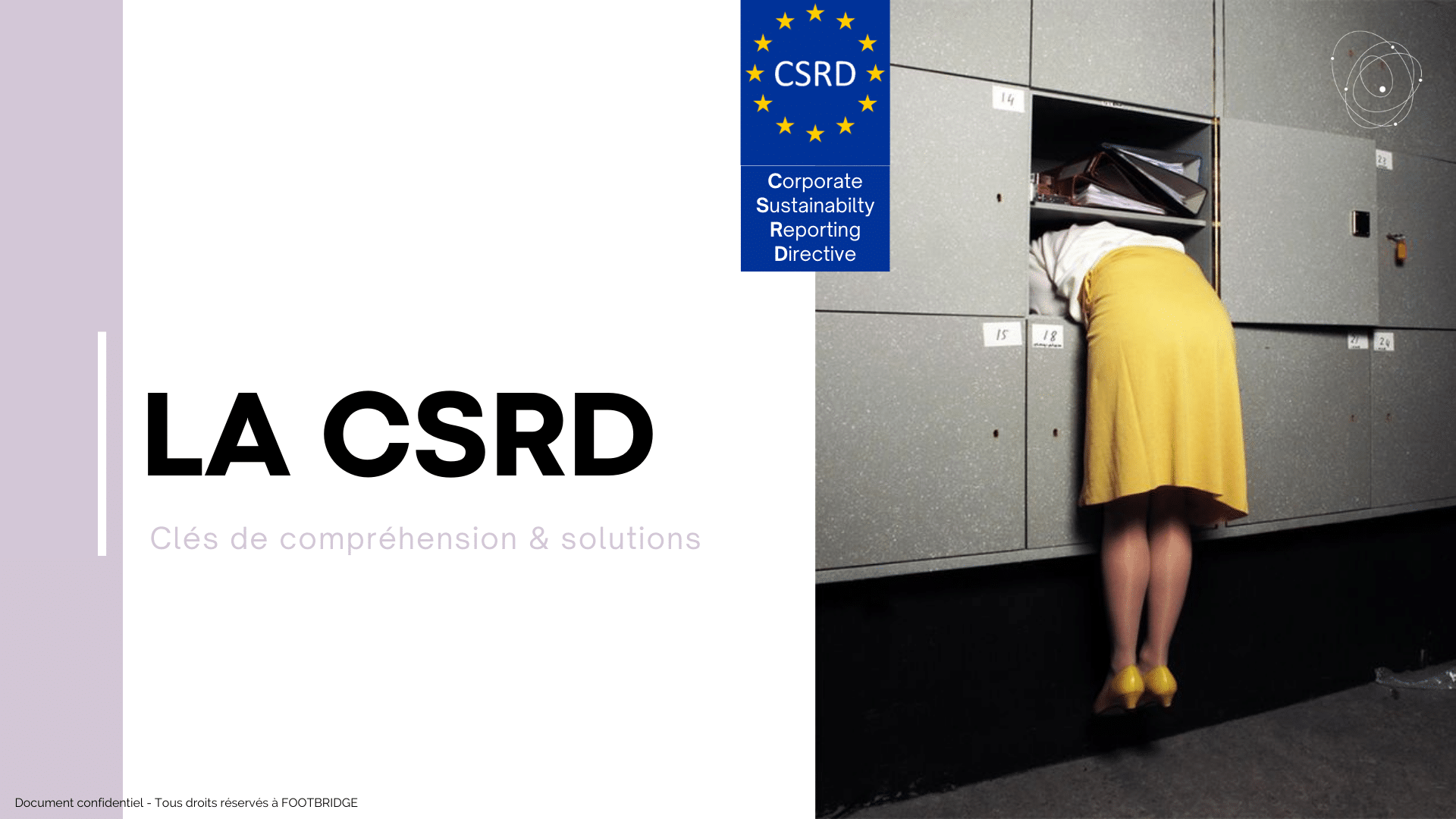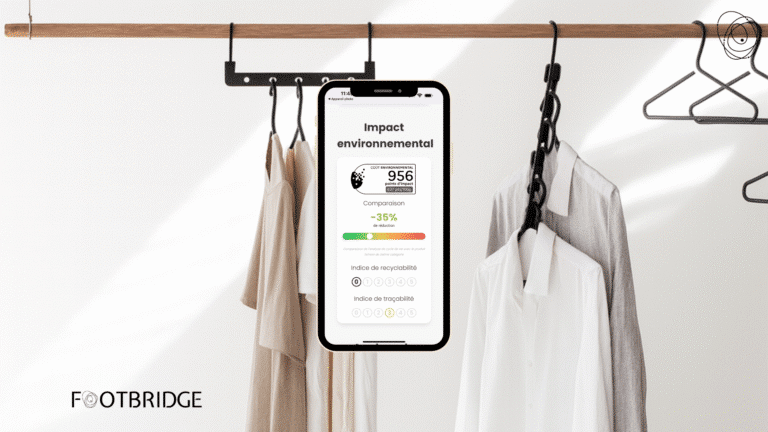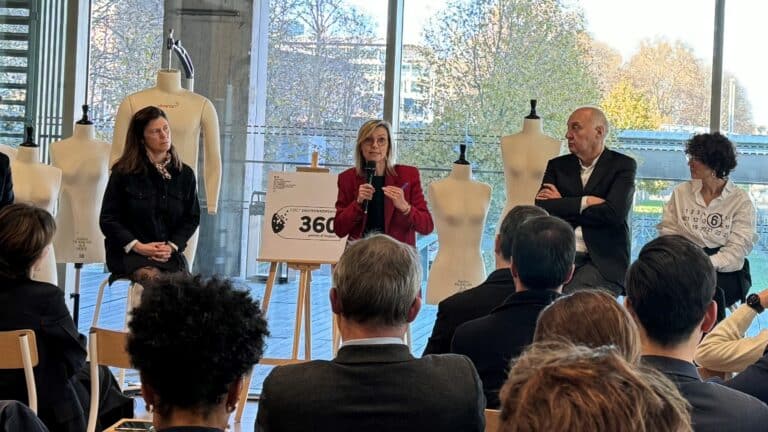Over the past two decades, the fashion landscape has evolved towards a growing awareness of the environmental and social impact of companies. In this sense, the CSRD (Corporate Sustainability Reporting Directive) is emerging as a crucial step towards greater transparency and wider corporate responsibility within the European Union.
This directive aims to harmonize and strengthen ESG reporting obligations, providing investors, stakeholders and the public with more comprehensive and comparable information on companies’ sustainable performance. But what is really at stake, and how could this benefit companies?
Sommaire
Are we really committed to impact reduction?
In the context of the textile industry, CSRD is all the more relevant. While eco-design and the AGEC law have marked significant milestones on the road to sustainability, it’s indisputable that many companies are not yet up to the environmental and social challenges of our time. The evidence is clear: despite progress, we are seeing backsliding in some areas. It is in this complex landscape that the CSRD is emerging as a new paradigm.
Yet the directive is far from arousing unanimous enthusiasm. Companies feel stifled by a myriad of standards and regulations, perceiving CSRD as an additional constraint. At GOOD FABRIC x FOOTBRIDGE, we have chosen to turn this constraint into an opportunity. We have decided to take advantage of these regulatory changes by strengthening our CSRD skills. Our approach is not limited to a simple administrative obligation; we see it as an opportunity to create value for companies and strengthen their employer brand.
Calculate the eco-score of your clothing
Master the environmental impacts of your designs with our dedicated platform.
Schedule a demoCommon sense and double materiality
It’s time to change perspective. CSRD must not be approached solely from a moral or regulatory compliance angle. At GOOD FABRIC x FOOTBRIDGE, we’re convinced that common sense must be at the service of a company’s economic profitability. Beyond its mandatory nature, this directive offers a unique opportunity to achieve a double materiality: combining financial performance with social and environmental impact. It’s a genuine corporate project, transcending traditional boundaries and helping to shape a more responsible future.

The last twenty years have been a veritable crusade to continue believing in more responsible fashion. Our pioneering path has been strewn with obstacles and unexpected challenges. However, we are convinced that our industry is at a turning point. The CSRD has come at just the right time to reinforce this momentum for change.
To be clear-sighted, it is essential to recognize that CSR is not yet a priority for many companies. It is often relegated to second place, far behind immediate economic imperatives. Yet a sincere and ambitious CSR approach, perfectly integrated into a global strategy, can create value and sustain profitability over the long term. CSRD offers an opportunity to make a structured commitment to this approach. By emphasizing transparency and traceability, it could encourage companies to rethink their practices and make the reduction of their social and environmental footprint a central part of their strategy.
Time for real action
In short, the CSRD is much more than just a regulation. It’s a call to action for companies, encouraging them to embrace sustainability as a driver of growth and innovation. It’s a reminder that value creation isn’t just about the numbers on a financial balance sheet, but extends to the impact we have on our planet and on future generations.
If you share our conviction that CSRD represents a unique opportunity to shape a better future for our companies and our planet, then let’s join forces to make this vision a reality with pragmatism. At GOOD FABRIC x FOOTBRIDGE, we’re ready to enthusiastically support you in leading and implementing your CSRD reporting.
Nathalie VAUTIER
Co-founder GOOD FABRIC & FOOTBRIDGE
5 key questions about the article
- What is the CSRD directive?
The Corporate Sustainability Reporting Directive (CSRD) is an evolution of the Non-Financial Reporting Directive (NFRD). Coming into force on January 1, 2024, it extends sustainability reporting requirements for companies, with the aim of providing greater transparency on environmental, social and governance (ESG) impacts.
- Why is CSRD important for companies?
The CSRD aims to standardize and strengthen sustainability reporting for all significant companies operating within the EU, including large listed companies and certain listed SMEs. It introduces stricter sustainability reporting standards to ensure that information is reliable, comparable and complete, facilitating a more sustainable economy and informed investment decisions.
- Which companies are affected by CSRD?
The directive applies to large companies with more than 500 employees, public-interest enterprises and listed SMEs, with the exception of micro-enterprises. This includes entities within the EU as well as foreign companies carrying out significant activities in the EU.
- When should companies start implementing CSRD?
Obligations begin as early as fiscal year 2024, with the new reporting rules applying to reports published in 2025. This marks a crucial step in the harmonization of sustainability reporting at European level.
- What are the main changes introduced by the CSRD?
The CSRD introduces more detailed and extensive reporting requirements, based on the European Sustainability Reporting Standards (ESRS). It requires sustainability reports to be verified by external auditors, increasing the reliability of the information disclosed.






